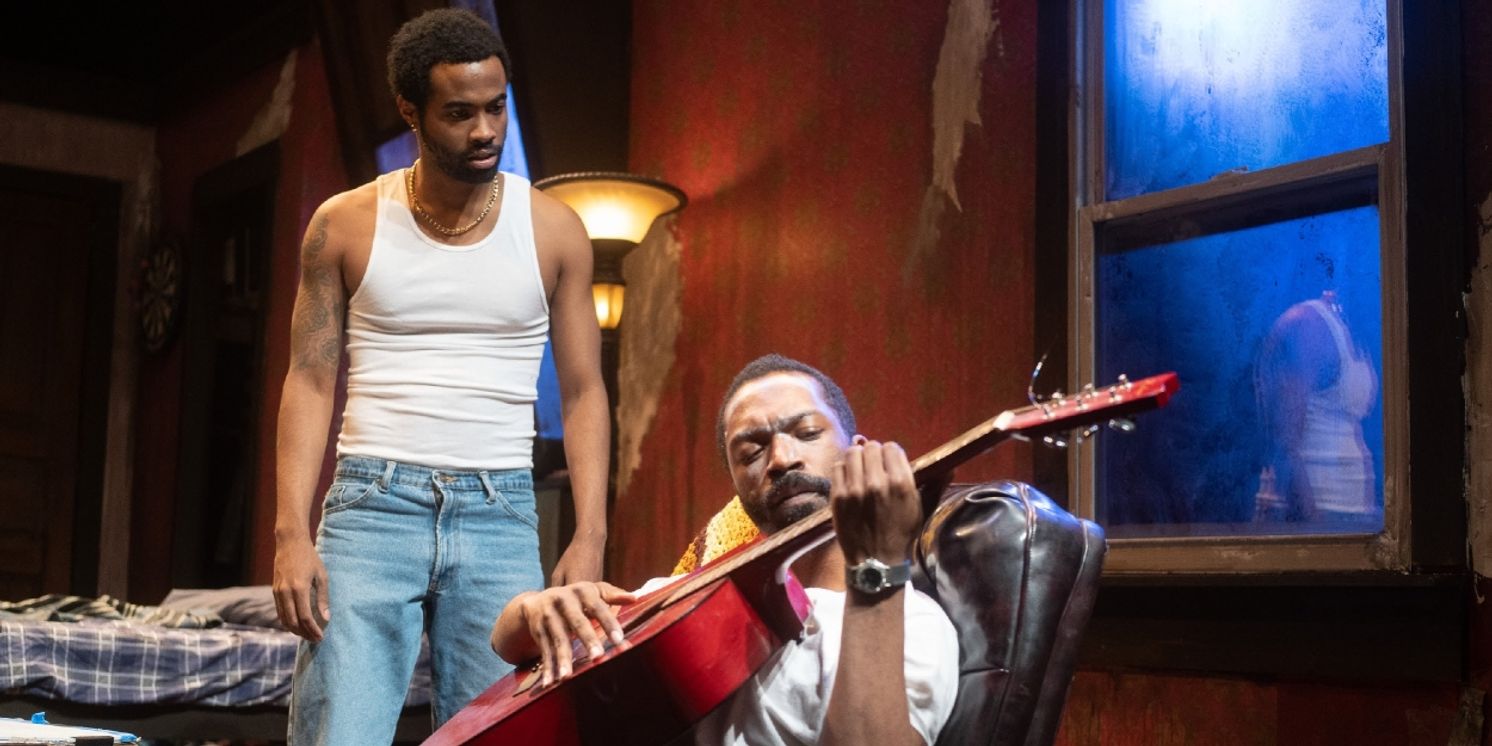Review: TOPDOG/UNDERDOG at Invictus Theatre Company
The Pulitzer Prize-winning drama runs through March 31.

Suzan-Lori Parks's groundbreaking play TOPDOG/UNDERDOG hardly needs an introduction for most fans of American theatre. Critic Ben Brantley described the original Broadway production as "a deeply theatrical experience." The following month, the script won the 2002 Pulitzer Prize for Drama. In 2018 The New York Times named it the best American play since Tony Kushner's ANGELS IN AMERICA. For these reasons and many others, it's perhaps fitting that Invictus Theatre Company is choosing to mark the artistic "groundbreaking" of their new headquarters with a work that marked a definite shift in the landscape of American letters. But while the production has moments of comedic entertainment and dramatic import, it struggles to live up to the play's substantial reputation. It runs through March 31 at the Windy City Playhouse in Irving Park.
Revived on Broadway in 2022, TOPDOG/UNDERDOG tells of several consequential days in the lives of siblings and roommates Lincoln and Booth. Lincoln (Mikha'el Amin) spends his days---in a device borrowed from Parks's 1993 work THE AMERICA PLAY---working as an Abraham Lincoln impersonator at an arcade where patrons pay to reenact the assassination at Ford's Theatre. Unemployed Booth (DeMorris Burrows) sits around their dilapidated apartment practicing his three-card monte dealing skills to make money as a card sharp. When Lincoln's job is put into jeopardy and Booth regains the attention of his on-again, off-again girlfriend, the two brothers find themselves fighting to escape the existential traps of racism, poverty, and identity that have shaped their entire lives.
There's no question that director Aaron Reese Boseman is especially adept at conducting his actors through a space and creating striking, even gut-wrenching, portraits throughout the show. He frequently has Amin and Burrows go about their daily rituals in synchrony, reminding the audience that the brothers are more alike than not. More impressively, though, the movements feel both thematically significant and completely natural. Even the act of taking off pants feels like a sacred ritual. Boseman also manages to draw out the comedy of the play's early scenes, with one highlight being when Lincoln comes home with his long-awaited Friday paycheck. Amin and Burrows throw themselves physically and emotionally into an exaggerated vaudeville act that allows the actors to show off their comedic abilities. But the scene also shows viewers that these brothers, despite whatever conflict may have taken place the night before, cannot live without one another. At least for now.
There's no questioning Burrows's charisma and good humor. As the audience enters the theater and takes their seats, he kills time playing hackysack and cards in a way that is immediately riveting. He has a winning smile and a frustrated earnestness that makes him easy to root for, even if audiences might want to judge his methods of survival. This sympathy never fades, perhaps because he has effectively captured Booth's sense of entrapment and almost violent need to escape his circumstances. For his part, Amin is at his best when he's commanding the stage on his own terms. His monologues are delivered with a steady gravitas and a growing sense of despair that foreshadows the narrative's inevitable conclusion while preserving the surprise. In one of the play's most notable dramatic moments, Amin's smooth voice steadily turns into a menacing growl as he recounts the indignities he faces at work every day. Between the actor's delivery, a shift in lights, and the appearance of a light haze, viewers feel transported from a claptrap apartment to a carnival arcade with him (scenic design by Kevin Rolfs and lighting design by Brandon Wardell and Josiah Croegaert).
While there are moments worthy of praise, they aren't necessarily enough to buoy a production that feels as though it drags on longer than its two-and-a-half-hour runtime. Parks's plays often intentionally include dead space intended to allow the actors and directors to explore the personalities and circumstances of these characters in unique ways. But Boseman doesn't seem to take advantage of these opportunities as much as he could. More consequentially, the transitions between scenes feel interminable, largely because the actors must change the props and scenery by themselves. This creative choice certainly lends the production an atmosphere of realism, but is this a necessary element in a play once described by the Pulitzer board as a "fable"? There is also the matter of delivery, especially in the work's decidedly heavier second act. Lines necessary for understanding the characters' motivations and dramatic arcs become lost in drunken slurs or strained screaming to the point where the final scenes' shocking revelations become a source of confusion, not catharsis.
And according to Suzan-Lori Parks, this catharsis is a necessary element of TOPDOG/UNDERDOG. In a 2022 interview for The New Yorker Radio Hour, she said that her play, at its best, "shocks [audiences], it wakes them up, it moves them to reconsider basic aspects of their life." Invictus Theatre Company's production certainly is shocking, especially for those who haven't encountered the work before. But any ensuing reevaluation of the way we live feels as elusive as the red card in a con game.
Photo Credit: Through Line Studios
Reader Reviews

Videos

